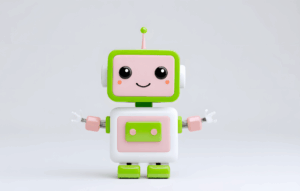\In most of our households, polyurethane sponges are an everyday cleaning tool. These colorful, convenient, and versatile items help keep our kitchens, bathrooms, and other spaces clean. But behind their common presence lies a disturbing truth: polyurethane sponges can have some seriously negative effects on both our health and the environment. From their manufacturing process to disposal, these sponges come with some issues that most people aren’t remotely aware of. Here’s why switching from polyurethane sponges to safer, eco-friendly alternatives is a smart move.
What Are Polyurethane Sponges Made Of?
Polyurethane is a synthetic polymer created from petrochemicals, which are derived from fossil fuels. Manufacturers choose polyurethane for its flexibility, durability,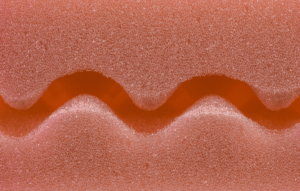 and resistance to breakdown, making it ideal for cleaning tasks that require a tough material. However, these qualities come with a trade-off, as polyurethane doesn’t biodegrade easily, leaving it in our environment for hundreds of years.
and resistance to breakdown, making it ideal for cleaning tasks that require a tough material. However, these qualities come with a trade-off, as polyurethane doesn’t biodegrade easily, leaving it in our environment for hundreds of years.
In addition to their slow degradation, polyurethane sponges are often infused with antibacterial agents or other chemical treatments, which help extend their lifespan but increase their potential risks. With each use, these sponges may shed microplastics and release chemicals that can pose a risk to both human health and the planet.
Health Risks of Polyurethane Sponges
Chemical Exposure from Daily Use
Polyurethane sponges contain compounds that, when degraded, can release potentially toxic substances. When cleaning with these sponges, you’re not only spreading water and soap but may also be introducing synthetic chemicals onto your countertops, dishes, and even into your food. These chemicals can be ingested or inhaled, contributing to potential health issues over time.
Microplastic Shedding
A lesser-known risk associated with polyurethane sponges is their propensity to shed microplastics. As sponges wear down, tiny plastic particles can break off and end up in your kitchen sink or even the food you prepare. Microplastics are persistent pollutants, meaning they don’t easily break down in the environment or in our bodies. Research shows that these particles can carry toxins, which, when ingested, can disrupt the body’s endocrine system and potentially impact hormonal balance.
The Unknown Long-Term Impact
The impact of repeated, low-level exposure to the chemicals found in polyurethane sponges has yet to be fully understood. However, scientists are becoming increasingly concerned about the long-term health effects of microplastics and synthetic chemicals. As polyurethane breaks down, it may also release compounds that mimic human hormones, known as endocrine disruptors, which have been linked to developmental, reproductive, and neurological issues.
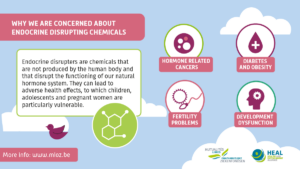
Environmental Impact of Polyurethane Sponges
Manufacturing’s Carbon Footprint
The process of creating polyurethane is energy-intensive and requires large quantities of fossil fuels. During production, factories release harmful emissions that contribute to air pollution and global warming. The environmental impact extends far beyond your kitchen sink, with the entire production cycle of polyurethane sponges contributing to environmental degradation.
Non-Biodegradable Waste
Unlike natural materials, polyurethane does not break down quickly. Conventional polyurethane sponges can sit in landfills for hundreds of years, adding to our planet’s growing plastic pollution problem. When disposed of improperly, these sponges can make their way into rivers, oceans, and other ecosystems, where they pose risks to wildlife. Marine animals, in particular, can mistake microplastics for food, leading to severe health consequences and even death.
Impact on Marine Life
Polyurethane’s long life in aquatic environments makes it a threat to marine ecosystems. Over time, discarded sponges can release microplastics into the water, which fish and other marine animals may consume. These microplastics can accumulate in the food chain, affecting not only marine species but also potentially impacting human health when we consume seafood contaminated with microplastics.
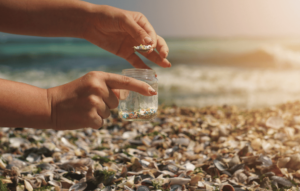
Eco-Friendly Alternatives to Polyurethane Sponges
With growing awareness of the health and environmental risks associated with polyurethane, there has been a surge in eco-friendly cleaning alternatives. Here are some safer, sustainable sponge options that won’t harm your health or the planet:
- Cellulose Sponges
Made from wood pulp, cellulose sponges are biodegradable, compostable, and free from synthetic chemicals. They are highly absorbent and can be safely disposed of without leaving harmful residues behind. - Loofah Sponges
A natural product derived from the dried fruit of the loofah plant, loofah sponges are biodegradable and effective at scrubbing away grime. They break down much more quickly in the environment and can be composted after use. - Reusable Cloths
Materials like organic cotton cloths and bamboo fiber cloths are eco-friendly options that can be washed and reused, reducing the need for single-use cleaning items. They’re less likely to shed microplastics and are more durable than polyurethane sponges, making them an economical choice as well. - Natural Sea Sponges
While more expensive, natural sea sponges are both biodegradable and highly durable. They can be composted at the end of their life cycle and are a high-quality, sustainable choice for eco-conscious households.

Tips for Transitioning to Safer Cleaning Alternatives
If you’re ready to make the switch, here are a few tips to help you transition to eco-friendly sponge alternatives:
- Start Small: Replace your polyurethane sponge with a cellulose or loofah sponge. You don’t have to switch everything at once; start with one change and see how it fits your cleaning routine.
- Consider Durability: Many eco-friendly options, such as cotton cloths, are designed to last longer than synthetic sponges. Look for products that are machine washable or can be easily cleaned to maximize their lifespan.
- Proper Disposal: If you still have polyurethane sponges, make sure to dispose of them properly. Don’t let them end up in nature where they can harm wildlife. Instead, look into recycling options or repurpose them for non-food cleaning tasks until they wear out.
- Support Sustainable Brands: Choose products from companies committed to environmentally friendly practices. Many brands now prioritize sustainable materials and packaging, so you can make choices that reflect better sustainability values.
Final Thoughts
Switching from polyurethane sponges to eco-friendly alternatives may seem like a small act, but it over time it can have some pretty far-reaching implications. By choosing biodegradable, natural, or reusable sponges, you’re reducing your exposure to potentially harmful chemicals and decreasing your environmental footprint.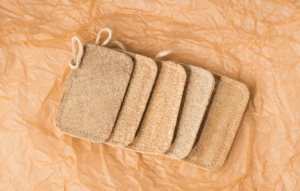
Polyurethane sponges, while convenient, come with risks that are simply not worth ignoring if you care to live a healthy and sustainable lifestyle. They greatly contribute to pollution, can negatively impact your health, and add to the massive problem of plastic waste. As more people become aware of the hidden hazards of everyday items, making eco-conscious decisions can lead to a cleaner, safer world for future generations.
Take a closer look at the cleaning products in your home and consider swapping out your polyurethane sponges for more natural alternatives. It’s a simple switch that can make a real difference in protecting your health and the planet. Let’s make the move towards cleaner, greener living – one sponge at a time.






